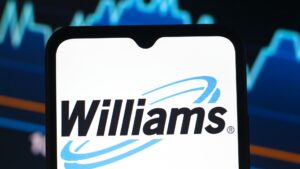Would you like to pay $2 a gallon — or a lot less — for gas? If you drove an electric car, that’s the equivalent of what you would pay for the electricity to charge the battery.
That estimate comes from Southern California Edison, the power company that supplies some of the electricity I use to recharge my 2021 Hyundai Kona EV. I say “some” because the rooftop solar panels on my house help to charge my car. During the day, electricity from the sun goes right into my car’s battery. It’s like magic.
While a $2-a-gallon equivalent sounds nice, it’s more impressive when you look at the lifetime savings. Over the anticipated 15-year life span of a vehicle, the electricity to run an electric vehicle can be as much as $14,480 cheaper than fueling a gas-powered car, according to a study done by the U.S. Department of Energy’s National Renewable Energy Laboratory and the Idaho National Laboratory.
I’m not singing the virtues of the low cost of EV charging to score eco-points. I just want people to understand what I think is one of the great advantages of driving an electric car. For a cheapskate like me, it was a welcome surprise that recharging could be so cheap — sometimes even free.
On the other hand, charging can be expensive if you haven’t planned ahead.
Recharging costs for EVs are based on many variables: the cost of electricity in your state, the time of day you charge, the size of your battery, just to name a few.
Charging at home
Buying a charging station, and having an electrician install it, costs about $1,200, according to the home remodeling website Fixr. (I spent only $500 for my charger, which I’ve been using for over six years.)
Since electricity costs more during peak evening hours, most EV owners set a timer to begin charging late at night.
Using these reduced rates, the Nissan LEAF with a 150-mile range would cost about $7 to fully charge, according to the California Air Resources Board. Compare that with a gas-powered car getting 25 miles per gallon. It would cost about $22 for enough gas to drive that car 150 miles in areas where gas costs $3.70 per gallon.
Charging on the road
Recently, I took two road trips in my Kona EV and stayed at hotels that provided free charging. I estimated that this was a value of about $30, saving me from paying around $4.25 a gallon to drive the same distance.
Imagine if a hotel had a gas pump and it invited you to go ahead and fill up. There are many apps that can help you locate free charging, but you can find it frequently at hotels, government offices, shopping malls and grocery stores, even in national parks.
Now for the bad news: Not every hotel has a charging station, and you may actually have to pay.
While there are increasing numbers of publicly available charging stations, they can cost in ways you might not expect. Some charge a flat fee just to hook up. Some charge you if you leave the car plugged in after it’s stopped charging.
Some charging stations bill by the minute; a typical rate from the EVgo network is 28 cents a minute plus a $1.99 “session fee.” An hour at a charger (possible with an older EV whose battery accepts current slowly) would cost about $19. Newer EVs might be in and out in 15 minutes.
Other stations bill by the kilowatt-hour. A typical fast-charging rate from the Electrify America network is 43 cents per kWh. Adding 40 kWh to your EV’s battery would cost about $17.
In all cases, the cost of electricity is much, much higher than you would pay at home. Charging networks typically offer a membership pass that reduces the cost, but refueling on the road at commercial chargers frequently can lessen or even erase the savings an EV might otherwise offer.
Paying off the EV premium
While electricity is a cheaper fuel for cars, the initial cost of an electric car is roughly $19,000 higher than a comparable gas-powered car, according to the Natural Resources Defense Council. This is often reduced considerably by manufacturer rebates and a federal tax credit of $7,500. Furthermore, many people opt to lease an EV rather than buy one, and manufacturers offer lease specials at dramatically reduced costs.
In my case, I found a financing special from Hyundai that allowed me to lease my Kona for $2,000 down and a monthly payment of $254. I applied for a rebate from the California Air Resources Board, and two months later I received a $2,000 check, effectively reimbursing my down payment.
Still, if you want to calculate the true fuel savings, you have to pay back any premium you paid for a more expensive electric car. And the fastest way to do that is charging at home in off-peak hours.
This post was originally published on Nerd Wallet







